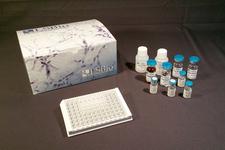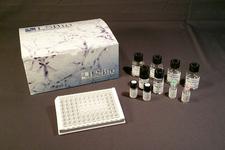order histories, retained contact details for faster checkout, review submissions, and special promotions.
Forgot password?
order histories, retained contact details for faster checkout, review submissions, and special promotions.
Location
Corporate Headquarters
Vector Laboratories, Inc.
6737 Mowry Ave
Newark, CA 94560
United States
Telephone Numbers
Customer Service: (800) 227-6666 / (650) 697-3600
Contact Us
Additional Contact Details
order histories, retained contact details for faster checkout, review submissions, and special promotions.
Forgot password?
order histories, retained contact details for faster checkout, review submissions, and special promotions.
ADCYAP1R1 / PAC1 Receptor
adenylate cyclase activating polypeptide 1 (pituitary) receptor type I
The PACAP receptor type 1, a member of the vasoactive intestinal polypeptide subfamily, binds the hormone pituitary adenylate cyclase activating polypeptide (PACAP) with high affinity. PACAP is involved in stimulating the secretion of insulin, catecholamines, ACTH, and growth hormone. Additionally, PACAP appears to function as a neuromodulator/neurotransmitter in the central and peripheral nervous systems. Two start codons are reported in literature, one (nt 74-76) results in a 525-amino acid protein with a signal peptide of 77 amino acids encoded by nt 74-304 and the second (nt 245-247) initiates a 468-amino acid protein with a signal peptide of 20-amino acids encoded by nt 245-304. The efficiency of these two start codons is not known.
| Gene Name: | adenylate cyclase activating polypeptide 1 (pituitary) receptor type I |
| Family/Subfamily: | GPCR , Vasoactive intestinal polypeptide |
| Synonyms: | ADCYAP1R1, PAC1, Pac1 receptor, Pac1 receptors, PAC1-R, PACAP receptor 1, Pacap specific receptor, PACAP-R-1, PACAP/VIP receptors, PACAP1 receptor, PACAP Receptor, Pacap receptor type 1, Pacap type 1 receptor, PACAP type I receptor, PACAPR, PAC1R, PACAP-R1, PACAPRI, Pvr1, Pacap receptor type i |
| Target Sequences: | NM_001118 NP_001109.2 P41586 |
Publications (1)






If you do not find the reagent or information you require, please contact Customer.Support@LSBio.com to inquire about additional products in development.











